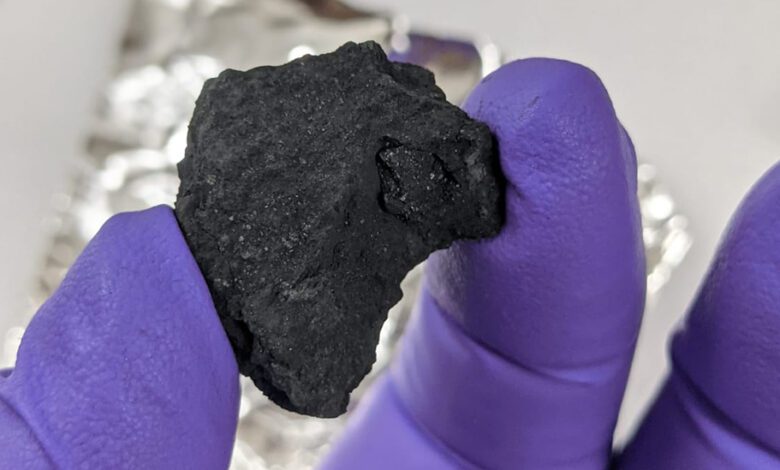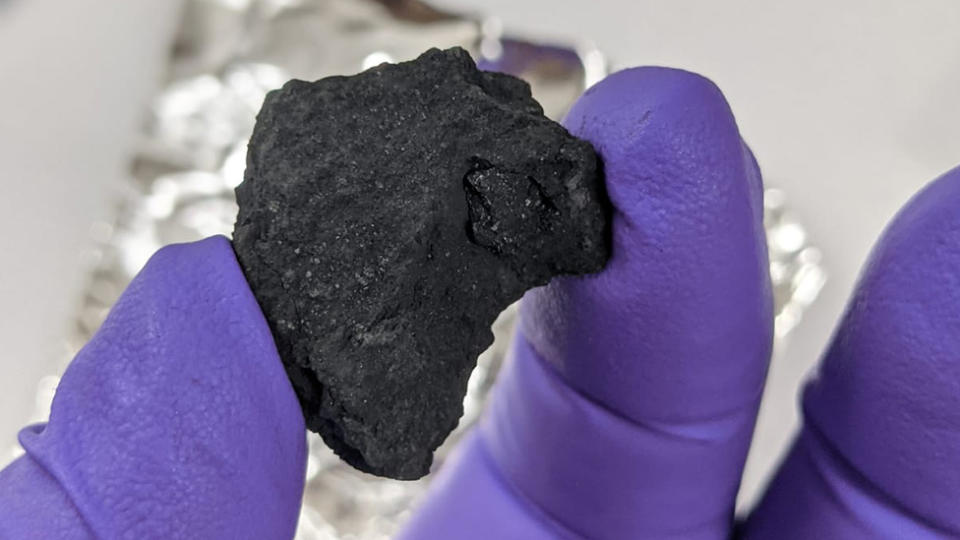
Winchcombe meteorite’s history revealed by fresh analysis
Scientists have revealed that a meteorite that fell into a sheep field was repeatedly broken down and reassembled during the journey through space.
Recent analysis of the Winchcombe meteorite suggests that water may have played a role in its violent journey.
The meteorite is the first to be found on UK territory in 30 years.
Dr. Diane Johnson, co-author of the paper, said that such research helps understand the formation of the solar system.
“The Winchcombe meteorite is a fascinating piece of space history,” she said.
The rock traveled for millions of years before reaching Earth.
The researchers said that the meteorite in its early days was a dry rock loaded with ice, but over millions of years the ice melted and turned into a ball of clay, which repeatedly disintegrated and was reassembled.
The results suggest that they were formed from pieces of other rocks stuck together — like broken pieces of multiple saws mashed together — in what is known as breccia.
Dr Luke Daly, from the University of Glasgow, led the research and said: “We were impressed to reveal the extent of breccia fragmentation within the Wincombe sample we analysed.
“If you imagine the Winchcombe meteorite as a jigsaw, what we saw in the analysis was as if each piece of the jigsaw itself had also been cut into smaller pieces, then mixed into a bag filled with the fragments of seven other saws.
“However, what we have discovered in trying to piece the puzzle together through our analyses is new insight into the very fine details of how the rock is changed by water in space,” he said.


The first part of the Winchcombe meteorite landed on a pass in February 2021, shortly after it was spotted as a fireball shooting across the sky.
This sample was recovered a few hours after it entered the Earth’s atmosphere.
More fragments were found in a field a few days later.
The Winchcombe meteorite belongs to a rare class of rocks known as carbonaceous chondrites.
They make up about three percent of all meteorites collected on Earth, and are thought to contain unchanged chemicals from the formation of the solar system more than four billion years ago.
Analyzing these minerals can help scientists find answers to questions such as How did the solar system evolve and how did Earth get its water?
A team of international researchers collaborated on the study, which was published in the journal Meteoritics And Planetary Science.
Follow BBC Gloucestershire on Facebook, X And Instagram. Send us your story ideas On email Or via WhatsApp on 08003134630.



